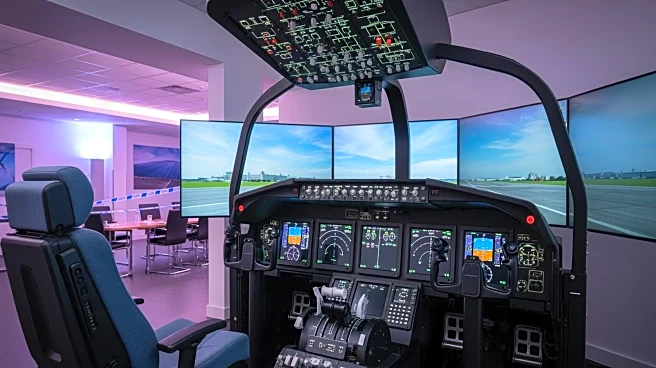What's Happening?
American Airlines is actively training its pilots to operate the Airbus A321XLR aircraft on transatlantic routes, with plans to commence these flights next year. Despite having 50 A321XLRs on order, the airline faces delays in delivery due to ongoing
seat supply chain challenges. The first aircraft is expected to join the fleet by the end of 2025. Training flights have been conducted using A321neo aircraft between Philadelphia and Edinburgh, focusing on adapting pilots to transatlantic procedures and conditions. The training includes learning new communication methods and understanding diversion airports in the North Atlantic.
Why It's Important?
The introduction of the A321XLR aircraft is significant for American Airlines as it expands its transatlantic service capabilities. The aircraft's extended range opens new route opportunities, potentially increasing the airline's market share in international travel. This development is crucial for American Airlines to remain competitive in the long-haul market, especially as other airlines also seek to enhance their fleet capabilities. The training ensures that pilots are well-prepared for the unique challenges of transatlantic flights, which is vital for maintaining safety and operational efficiency.
What's Next?
American Airlines plans to initially deploy the A321XLR on domestic routes before expanding to international destinations. The airline is expected to announce the specific international routes soon. As the training progresses, more pilots will be qualified to operate these flights, ensuring readiness for the aircraft's integration into the fleet. The resolution of supply chain issues will be critical for timely delivery and deployment of the A321XLR.
















